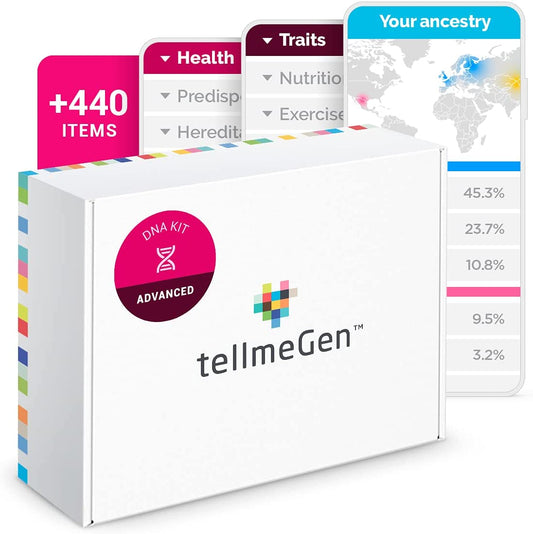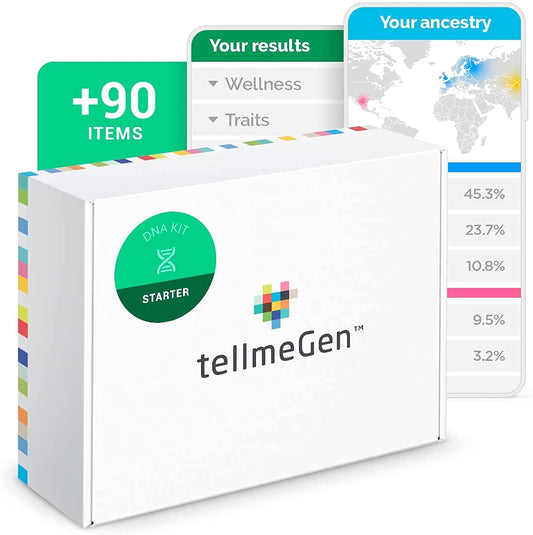Understanding Your Genetic Predisposition to Depression: Insights from tellmeGen DNA Testing
Depression is a complex and multifaceted condition that affects millions globally, posing a significant challenge to individuals and healthcare systems alike. With advancements in genetic testing, companies like tellmeGen are offering new insights into personal health predispositions, including the risk of developing clinical depression.
Decoding the Risk: A Genetic Perspective
The tellmeGen DNA test provides a nuanced understanding of one's genetic risk for depression. Utilising Polygenic Risk Score (PRS) analysis, the test examines over 13.5 million variants and 96 loci to determine an individual's susceptibility. This comprehensive approach enhances the precision of risk estimation, offering a personalised glimpse into the genetic factors that may contribute to the condition.
Contributing Factors: Beyond Genetics
While genetics play a crucial role, they do not act in isolation. Various non-genetic elements, such as hormonal shifts, life stressors, and lifestyle choices, intertwine with our DNA to influence depression risk. Recognising these factors is essential in forming a holistic view of mental health.
Age and Gender: The Demographic Influence
Statistical trends indicate that depression is more prevalent in adults and is particularly common among women. Understanding these demographic patterns is vital for targeted prevention and support strategies.
Emotional Resilience and Life Events
Individual traits such as self-esteem levels, coupled with life experiences like trauma or loss, can significantly affect one's likelihood of experiencing depression. These insights underscore the importance of psychological resilience and the need for robust support systems.
Symptom Spectrum: Recognising the Signs
Depression manifests in various forms, from persistent sadness and mood swings to physical symptoms like sleep disturbances and energy depletion. Awareness and early recognition of these symptoms are critical steps towards timely intervention.
Proactive Prevention: Community and Personal Strategies
Effective prevention programs and community support can markedly reduce depression risks. Personal strategies, including stress management and seeking early treatment, are equally important in mitigating the impact of this condition.
The Science Behind the Symptoms
Groundbreaking GWAS studies shed light on the genetic underpinnings of depression, identifying key loci associated with neurotransmission and synaptic structure. These findings not only enhance our understanding of depression but also pave the way for innovative research avenues.
Conclusion
tellmeGen's DNA test offers a revolutionary approach to understanding depression, blending genetic data with lifestyle and demographic factors to provide a comprehensive risk profile. As we continue to unravel the complexities of this condition, such personalised insights are invaluable in guiding prevention, treatment, and support strategies, ultimately leading to better mental health outcomes for individuals worldwide.















